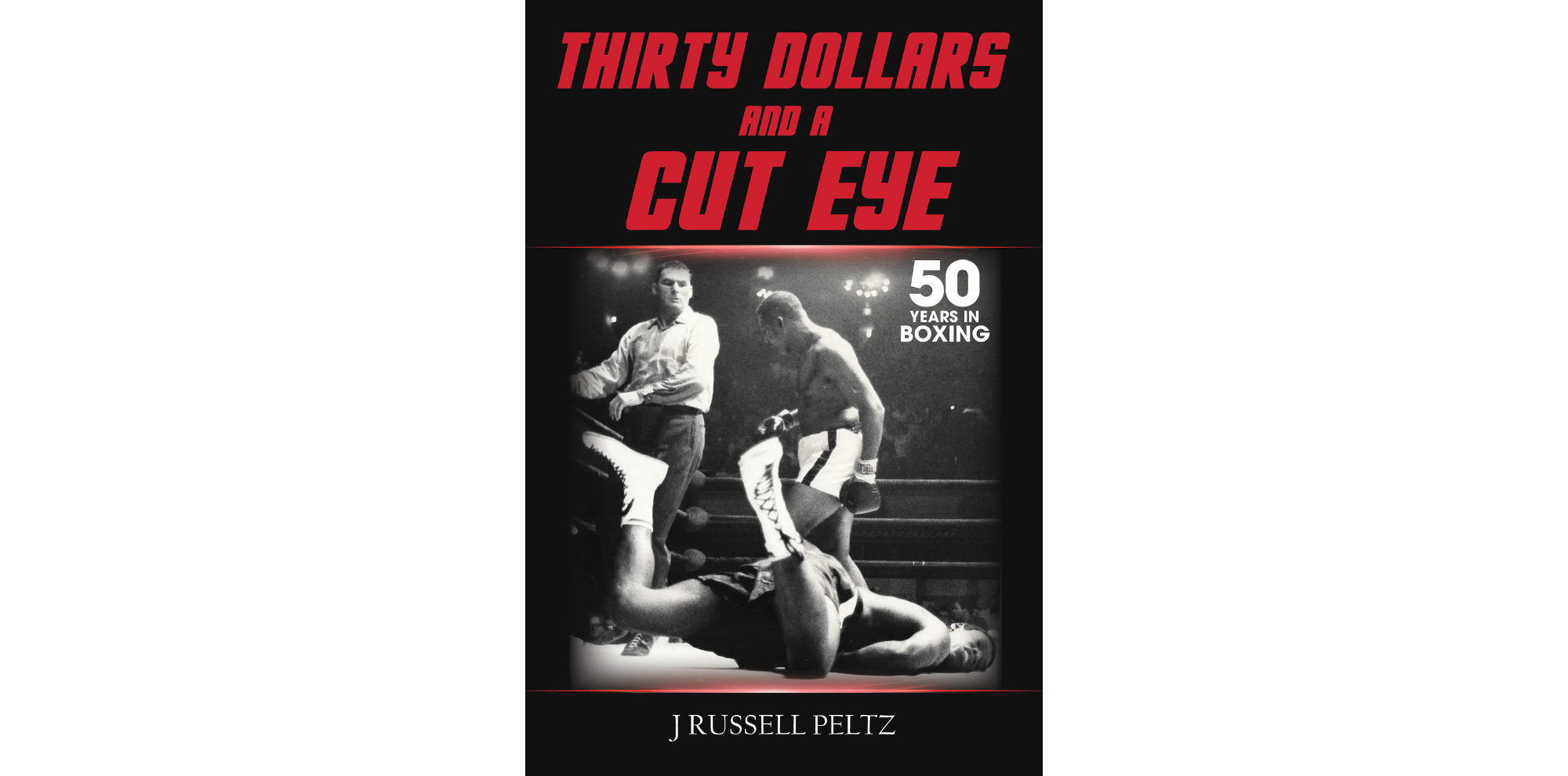Renowned boxing promoter J Russell Peltz, KLN ‘68 (he/him), never thought he would write a book. That is, until about 11 years ago, when he was inducted into Klein College of Media and Communication’s Hall of Fame by being awarded a Lew Klein Alumni in the Media Award in 2010. It was his longtime friend and colleague, sportswriter Ray Didinger, KLN ‘68 (he/him), who first encouraged him during a video montage created for the award ceremony.
“When he finished his talk, he said ‘Russell, you have a lot of stories. You owe us a book.’ And I think that was the first time I ever really thought seriously about the book,” Peltz said. “But honestly, if it hadn’t been for COVID, I would’ve never had the time.”
Though it was fifty years before Peltz put pen to paper to record his saga, his book, Thirty Dollars and a Cut Eye, was published in 2021 with a title that comes from the second fight he ever promoted. Before he became one of the most successful boxing promoters of his time, Peltz promoted a fight between John Saunders, a fairly unsuccessful boxer with a 0-4 record at the time, and North Philly middleweight Roland Marshall. Saunders signed a $50 contract for the fight, and after losing on a technical knockout, was disappointed to walk away with just that, thirty dollars and a cut on his eye, once his taxes and fees had been deducted.
Though he studied journalism here at Temple University, Peltz said he always knew boxing would be a major part of his life. In fact, he remembers “studying” for his College Board exams (now SATs) by listening to fuzzy broadcast signals of fights up in New York. And although he began his career in journalism, he credits his enrollment at Temple for many of the circumstances that eventually led him to his dream career.
“I chose Temple. And let me tell you something: it was the best thing that ever happened to me,” he said. “Because if I had gone out of town to school, I have no Idea how my life would've turned out; I would’ve been away from Philly, away from the boxing scene.”
While studying at Klein College, Peltz dedicated a large portion of his time to The Temple News. He often jokes that, “contrary to popular opinion, I did not attend Temple University. I attended The Temple News.” He was elated to be a part of a paper that came out four times a week, and became the assistant sports editor as freshman and sports editor as a sophomore.
Arlene Notoro Morgan, KLN ‘67 (she/her), now the assistant dean for external affairs at Klein College, remembers those days fondly, and could tell that Peltz’ passion set him apart early on.
“He was a gifted sports reporter and news page designer. But his real passion was boxing,” she said. “He even had his own home gym and punching bag.”
During the summer between his junior and senior years, Peltz took on a full-time position at the Philadelphia Bulletin. When school started up again the fall of his senior year and his editor suggested limiting his involvement to one night a week, Peltz felt his body go cold.
“I’ll work for free,” he told them, feeling the tears start to brew. Without a second thought, his editor kept him on full time. However, now he needed to balance the job with his coursework, though he left The Temple News to focus on it.
Upon graduation and after being awarded Outstanding Male Journalism Graduate, Peltz went back to work at the Bulletin. When he started to feel like he wasn’t progressing at the rate he would’ve liked, he took a risk and used his savings to pursue a career as a boxing promoter, knowing it could all be over in a matter of months. For security, he stayed on at the Bulletin for one night a week.
The rest, as they say, is history, as Peltz used that time to springboard into a storied career as one of Philadelphia's greatest boxing promoters.
To some, even his friend, it almost seemed too magical to be true as it happened before their eyes. Didinger remembered walking past the Blue Horizon, a boxing venue on Broad Street that had closed down, and Peltz insisting he would reopen it as a promoter. Of course, no one at the time believed him, but sure enough he eventually kept his word.
Though the Blue Horizon has since closed down again, Didinger remembers the first time he went there to see a fight Peltz was promoting. Though the two were friends and Didinger expected free entry to the event, Peltz was firm. He told him, “It’s a business, Ruh-mun-do.”
Fast forward about 50 years, and the two remain friends as Peltz adds “author” to his résumé. And while Didinger reads through the story of Peltz’ life and reminiscences about so many of the memories they shared as students and sports media figures, he could not be prouder of his friend.
“I think it’s terrific. I think it’s great,” he said. “I have been bugging Russell for years to actually write this book, and I’m glad he finally got around to doing it, because I had no doubt that once he sat down and wrote it, it was gonna be great.”

